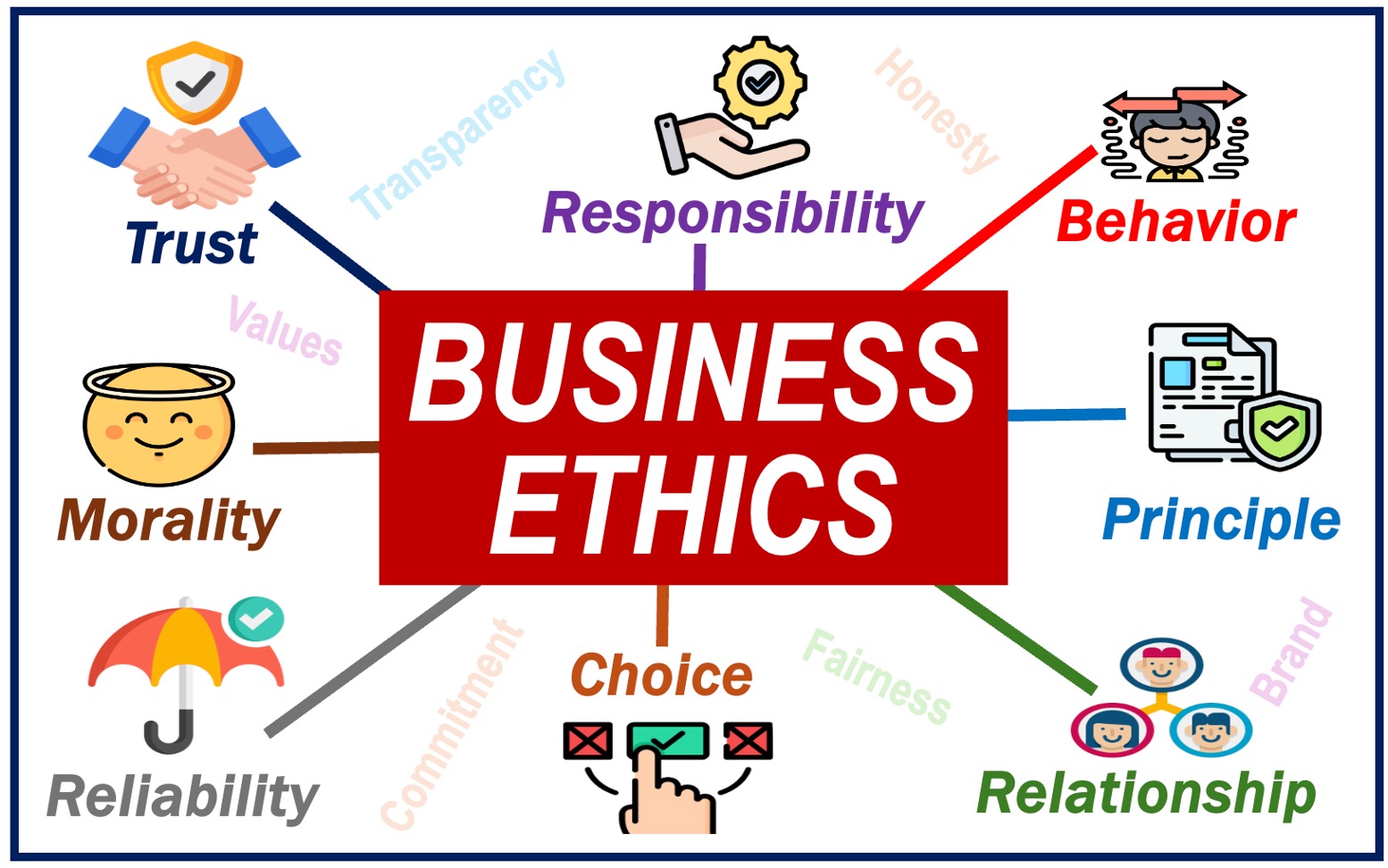The term ‘business ethics’ refers to the values and norms that govern all aspects of business conduct. This includes the behavior of individuals as well as the overall practices of an organization.
Running a company is not just about making a profit. Today, it is also about doing the right thing. That is where business ethics come in.
Think of it as a set of guidelines for how a company and its employees should think and behave. These guidelines are based on what is considered fair, honest, transparent, responsible, and respectful.
Business ethics are good for companies
Good business ethics can help a company succeed. Here are some reasons (among many) why they really matter:
Building trust
In today’s fiercely competitive marketplace, businesses need to have the best commercial features to compete effectively. Good business ethics is an important feature. Investors, customers, stakeholders, and the community in general are more likely to support a company they believe in.
If you and your employees or colleagues have a reputation for ethical behavior, you can build strong relationships and foster a loyal customer base.
Attracting talent
Top employees are more likely to want to work for a company with high ethical standards. In other words, good business ethics can help attract the best professionals.
Avoiding trouble
Unethical practices, whether intentional or not, can lead to costly fines or lawsuits. There is also the risk of damage to your company’s reputation. Once its brand has been tarnished, it is a long road to full recovery – rebuilding trust and credibility in the market can be an extensive and challenging process.
Doing the right thing
At the end of the day, operating with integrity just feels right – it is the proper thing to do. If your business embraces ethics, it is contributing to a fairer and more just society.
Enhancing company value
Ethical business practices can enhance the overall value of your company and boost its brand identity.

Some examples
Below are some real-life examples of business ethics in action:
Fair treatment of employees: This means providing safe working conditions, avoiding discrimination, and paying fair wages.
Honesty in marketing: When informing consumers about your products, you should avoid making misleading claims – be truthful.
Environmental responsibility: Strive to minimize your company’s negative impact on the environment. This might involve using sustainable materials, supporting renewable energy sources, procuring supplies locally when possible, and reducing waste.
Respecting competitors: As in sports, competition is healthy as long as you maintain a level playing field by adhering to the rules and engaging in fair play. Never resort to unfair tactics or try to steal intellectual property.
Customer privacy and data protection: Customer information should be kept confidential and secure. Only collect necessary data and use it in ways that your customers have consented to. Protect all personal data from breaches to maintain trust and comply with privacy laws.
Corporate transparency: Always be open and honest about the company’s operations, financials, and reporting. Communicate clearly with customers, prospects, consumers in general, shareholders, and other stakeholders.
It takes more than just good intentions to create an ethical company. You need to have clear policies in place, regular employee training, and channels for reporting concerns.
If you are the head of your company or a department, your presence and attitude set the tone – you lead by example.
Building an ethical business requires dedication, commitment, accountability, and transparency.
